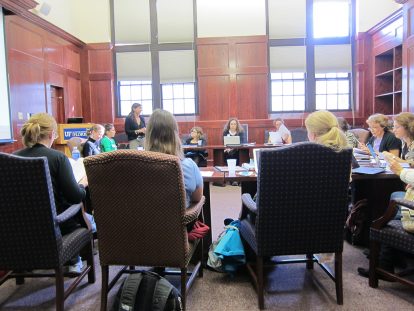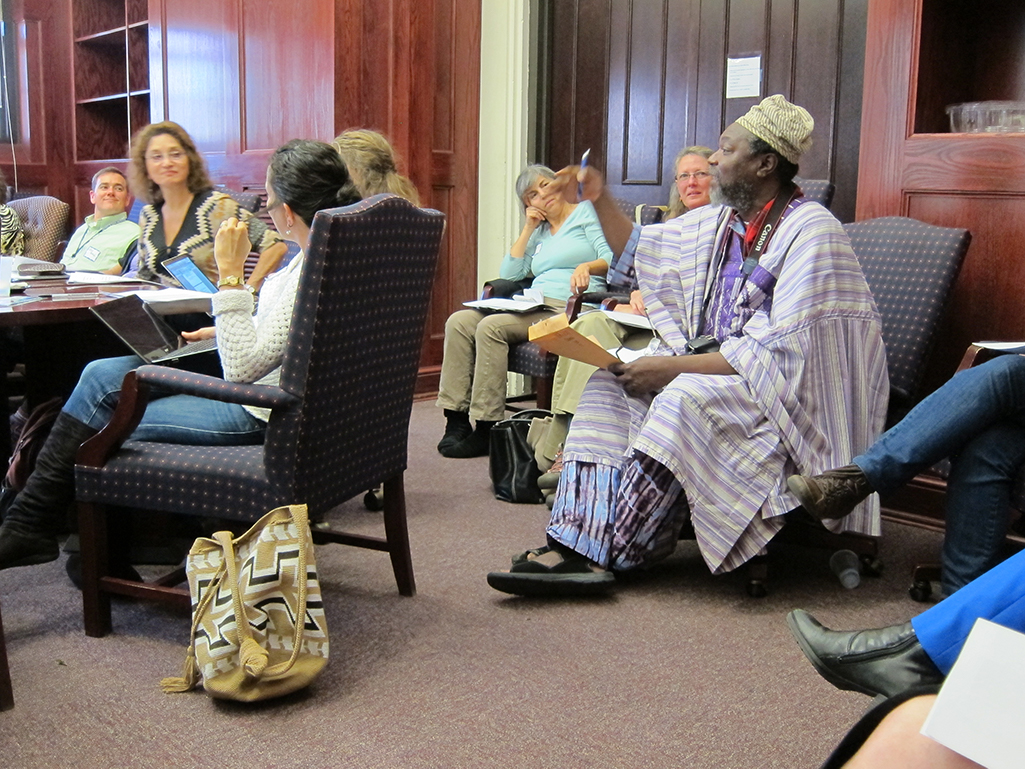February 2, 2015
Dauer Hall 215
Featuring: Anita Anantharam (Center for Women’s Studies and Gender Research), Angela Garcia (Center for Leadership and Service), and April O’Neal (Slow Food Gainesville)
 What does Feminist Theory have to do with Slow Food? The answer to this question is service-learning, a significant way for humanities scholars to connect theoretical ideas about the human condition to practical work in our communities. According to the National Service Learning Clearinghouse, service-learning is “a teaching and learning strategy that integrates meaningful community service with instruction and reflection to enrich the learning experience, teach civic responsibility, and strengthen communities.” In other words, service-learning combines pedagogy and community involvement to bridge the gap between the academy and the community and bring service into the classroom where teachers can utilize resources in the community, students can gain valuable cultural and professional experience, and community organizations can benefit from increased awareness and volunteerism.
What does Feminist Theory have to do with Slow Food? The answer to this question is service-learning, a significant way for humanities scholars to connect theoretical ideas about the human condition to practical work in our communities. According to the National Service Learning Clearinghouse, service-learning is “a teaching and learning strategy that integrates meaningful community service with instruction and reflection to enrich the learning experience, teach civic responsibility, and strengthen communities.” In other words, service-learning combines pedagogy and community involvement to bridge the gap between the academy and the community and bring service into the classroom where teachers can utilize resources in the community, students can gain valuable cultural and professional experience, and community organizations can benefit from increased awareness and volunteerism.
This hands-on workshop introduced UF teachers and community partners to the growing field of service-learning with particular attention service-learning components and strategies for humanities courses. The first part of the workshop discussed existing service-learning courses in the humanities at UF, illustrate relevant student learning objectives, and provide resources for developing mutually-beneficial and sustainable relationships with community partners involved in service-learning courses. The second part of the workshop gave participants time and assistance to develop service-learning components to their existing or future courses.
For copies of workshop notes, draft syllabi, and other resources on developing service-learning courses in the arts, humanities, and design, please email: humanities-center@ufl.edu or visit: https://leadershipandservice.ufl.edu/servicelearning/
This event was organized by the UF Imagining America Working Group in collaboration with the Center for Leadership and Service, with co-sponsorship from the Rothman Endowment at the Center for the Humanities and the Public Sphere.
